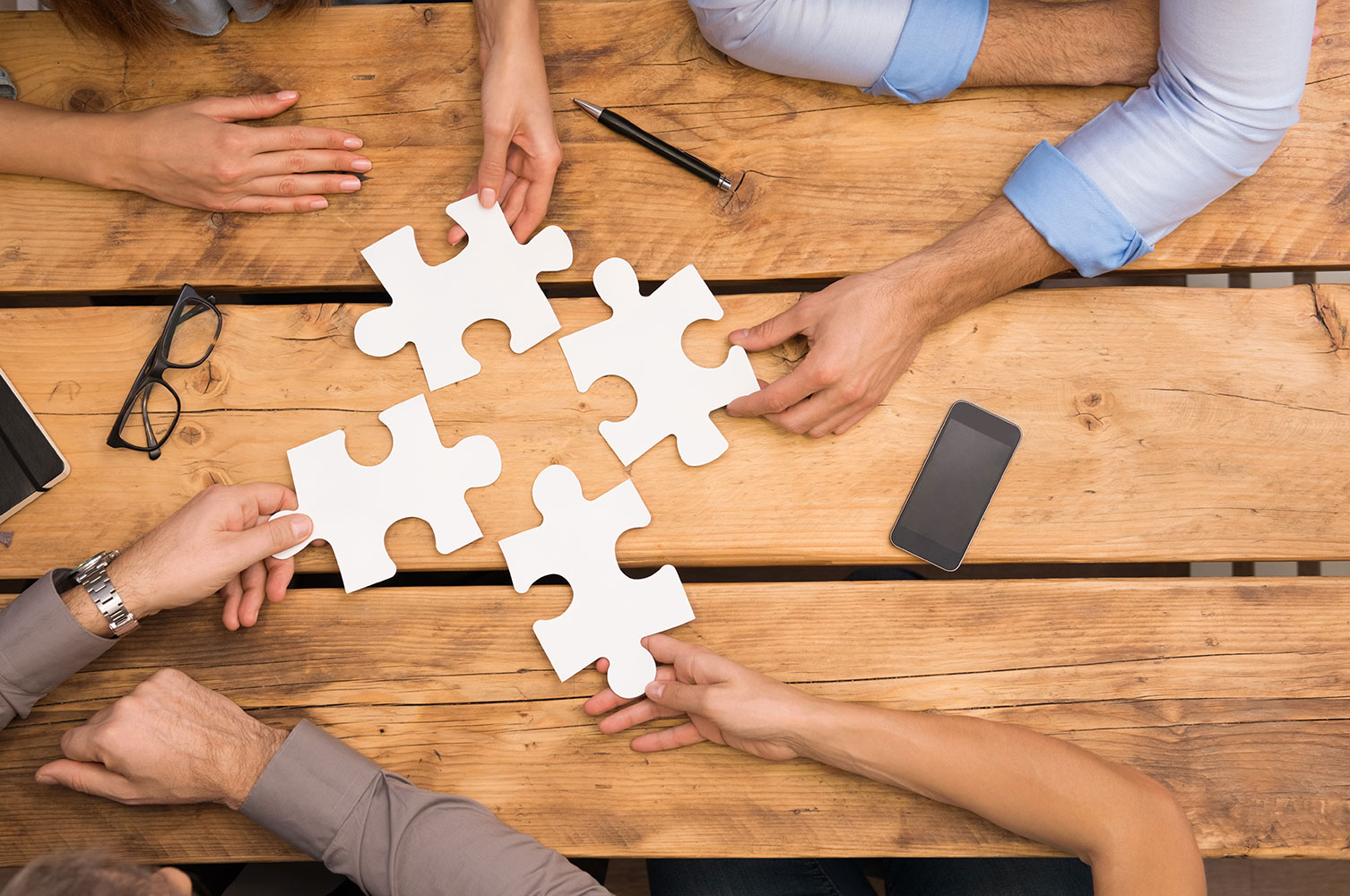Ego Checks, Spaghetti Sauce, and Other Suggestions for Nonprofit Collaboration
Collaboration is tough, collaboration might hurt your ego, but its outcomes can be much more satisfying than solely through individual work.

Collaboration is hard for nonprofits, but it’s worth it.
My dad is a fan of saying, “Many hands make light work,” as I’m being voluntold to help clean up after dinner. Now how does being elbow-deep in burnt-on spaghetti sauce relate to nonprofits? It’s hard work but collaboration makes it easier.
One thing I’ve learned working at nonprofits is that community development is TOUGH, especially work that aims to be representative of the community you’re serving. Being authentic and reflective of the great things in a community can lead to great outcomes, but not without some deliberate strategy on how to be community driven and community led. Sometimes this requires a slight shuffle or sometimes even a huge paradigm shift. Specifically, I’m talking about a project that is ongoing with my organization and how it can be translated to work happening with other nonprofits, including YNPN.
ION and Collaborative Work
I work for the Native American Community Development Institute, an organization focused on asset-based strategies with the urban American Indian community in South Minneapolis, Minnesota, along a stretch of Franklin Avenue we call the American Indian Cultural Corridor. We say that we’re an asset-based organization based on the fact that we focus on work that other service-based organizations in the neighborhood cannot do with their limited means. One such project is one we’ve dubbed the Indigenous Organizational Network (ION), an idea sparked from Dr. Joe Hobot at the American Indian Opportunities Industrialization Center or the AIOIC.
You’ve all played Trivial Pursuit, right? Well, take the example of the “pie piece holder” every player starts with at the beginning of the game. As the game takes its course and you correctly answer trivia, you win additional pie pieces to flesh out your holder. Back in Nonprofit LandTM, none of us have all the pie pieces, hence the difficulty in making collaborative work happen. We compete, compete, compete with one another to snatch up a pie piece before another nonprofit does and continue to perpetuate the nonprofit starvation cycle. Existing in the nonprofit sector is difficult enough, so why should we make it harder on ourselves?
United We Stand
What ION seeks to do is propose the idea of collaboration over competition for scarce resources. For example, I have a red and a blue piece and my fellow community nonprofit has a yellow and a green piece. Instead of a knockdown, drag out fight for resources, we’ll just push together our pieces to make a totes awesome mega piece that has the community needs at heart, while still pushing for the win. An example would be someone seeking mental health services while also needing to repair their credit. ION would be able to link together these services instead of the individual needing to seek out this information him or herself.
Pushing aside ego and individual aspirations is difficult but necessary in order to make a change for the indigenous populations we serve and break the cycle of poverty. We’re a collective of mental health providers, educators, loan officers, chemical dependency specialists, construction workers, and community activists that have finally understood that we should do our individual work as best as we can and ensure that we collaborate effectively to link our work together.
Collaboration and YNPN
This can also translate to other parts of the sector like YNPN. As a YNPN Twin Cities board member and Programming chair, I love to think our chapter is the only one doing a certain type of programming and that if we aren’t doing it, it ain’t happening! This is so far from the truth! I’ve seen awesome things happening with my fellow members around the country and felt the ego bruise from not thinking of it first. I know that the best way forward with our membership is to suck it up and realize that other chapters are doing some things better than we are, and think how we can better collaborate with those chapters. You may need an ice pack for the initial sting, but trust me, it’s helpful to check your ego in the long-run.
Collaboration is tough, collaboration might hurt your ego, but its outcomes can be much more satisfying than only through individual work. Think as a nonprofit professional how you can collaborate better in your community, or even with other nonprofits. Remember to take on the burnt on sauce because someone else is working on clearing the table and another person is prepping crème brûlée for dessert. Collaboration is hard but it’s worth it.
You might also like:
- When the Board Becomes the Problem: Reclaiming Power in Nonprofit Leadership
- Why Human-Centered AI Adoption Matters for Nonprofits
- Moving Beyond Performance: Making DEI Actionable
- The New Sheriff in Town: Tips for Successfully Leading a Nonprofit Team (that Someone Else Built)
- When the System Fails Quietly: What I’ve Learned from Sitting Between the Frontline and the Data
You made it to the end! Please share this article!
Let’s help other nonprofit leaders succeed! Consider sharing this article with your friends and colleagues via email or social media.
About the Author
Cole St. Arnold is the Operations and Projects Manager for the Native American Community Development Institute in Minneapolis. Cole is an enrolled member of the Jicarilla Apache Nation and is also a relation of the Keweenaw Bay Indian Community of Lake Superior Chippewa. He’s a proud CU-Boulder alum and also holds an MPA from the Arizona State University College of Public Service and Community Solutions. He currently serves on the boards for YNPN Twin Cities and Bii Gii Wiin CDLF. Cole regularly enjoys the Minnesota state parks system with his wife, Cate, and their corgi, Dr. Finndiana Bones.
Articles on Blue Avocado do not provide legal representation or legal advice and should not be used as a substitute for advice or legal counsel. Blue Avocado provides space for the nonprofit sector to express new ideas. The opinions and views expressed in this article are solely those of the authors. They do not purport to reflect or imply the opinions or views of Blue Avocado, its publisher, or affiliated organizations. Blue Avocado, its publisher, and affiliated organizations are not liable for website visitors’ use of the content on Blue Avocado nor for visitors’ decisions about using the Blue Avocado website.







